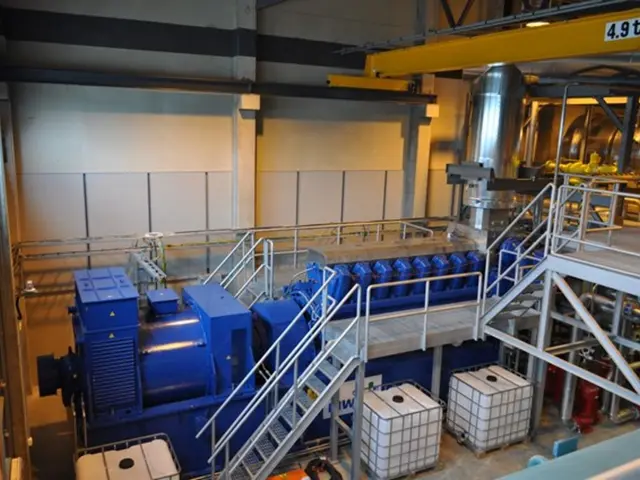Budget Allocation for 2023 Prioritizes Dental Care, Includes Deficit Reduction through Spending Cuts and Tax Increases
Fiscal Blues: Liberals' Budget Leaves Housing Woes Unresolved
Drop the mic, here comes the lowdown on the Liberals' 2023-24 fiscal plan. Finance Minister Chrystia Freeland unveiled her budget announcement yesterday, predicting a deficit $10 billion larger than initially anticipated - a whopping $40.1 billion in 2023-24. Freeland's battle plan bundles inflation relief and future economic growth, but there's nary a peep about significant new measures to battle the exploding housing crisis. Hold up, what gives?!
Financial jargon aside, what Freeland's budget really means is that our wallets are taking a hit. The budget projects a shortfall of about $5.7 billion in tax revenues this fiscal year – meaning there’s a big ol' hole in the government's pocketbook. To keep these deficits from ballooning, Freeland is proposing a heap of tax hikes on the well-off and corporations, coupled with some wise-spending cuts.
In total, Freeland wants to slice a cool $15.4 billion from government spending over the next five years by slashing certain programs and services. Some of these cuts include reducing the use of specialized consultants and administrative travel costs, while others involve novel tax measures. For instance, Freeland is planning to levy a 2% tax on stock buybacks, hike the Alternative Minimal Tax (AMT) to ensure the rich fork over more dough, and tax bank rewards. All together, these proposed moves are expected to rake in a staggering $11.6 billion in the next five years.
But wait, there’s more! The budget will also boost the air travel security fee by a whopping 32.85%, equating to a $34.82 levy on international flights. Air travelers are going to have to stump up some extra cash for the sake of security and baggage screening.
In a speech to MPs after tabling her budget, Freeland touted the document as continuing Canada's "proud tradition of fiscal responsibility." With economic growth forecast to flatline this year (a slight 0.3% increase in GDP), Freeland asserted it's crucial for Ottawa to maintain a financially prudent course while investing where it matters most.
However, the budget's failure to introduce any significant new initiatives to ease the housing supply crisis is downright alarming. A booming immigrant population and escalating housing costs mean we simply can't afford to sit idly by. As Armine Yalnizyan, a financial analyst and expert strategist, points out, "in terms of housing affordability, we're in a dire situation."
Missing from the budget is a comprehensive national plan to grow Canada's stock of affordable rental housing. Regrettably, the government's long-awaited RRSP-type account for homebuyers will only offer tax savings for first-time homebuyers, and the "housing accelerator fund" - promised in last year's budget to encourage residential development - will release only $925 million in funding this year.
It's about time the government tossed some serious cash at the housing supply crisis and prevented the situation from going from bad to worse. We need to make it rain for rental housing developments, stat!
Freeland's budget, touted as a continuation of Canada's fiscal responsibility, disappointingly lacks significant new measures to combat the growing housing crisis. This negligence is concerning, given the escalating housing costs and increasing immigrant population. Experts, like Armine Yalnizyan, emphasize the dire situation of housing affordability in Canada.
While the budget includes tax hikes and spending cuts to address the deficit, it fails to prioritize a comprehensive national plan to increase affordable rental housing. Instead, the proposed solutions, such as the RRSP-type account for first-time homebuyers and the housing accelerator fund, fall short of what's needed to address the housing supply crisis effectively.
Moreover, the budget's omission of environmental, health, and wellness-focused investments may impact our long-term economic growth. Investing in renewable technologies, health care, and travel security can spur innovation, boost the economy, and ensure the well-being of Canadians.
Investors looking for sound opportunities might want to explore alternative sectors, such as science and real-estate sectors, which hold potential for long-term growth. Moreover, personal-finance strategies like budgeting and smart investing can help mitigate the effects of the government's financial decisions on individual wallets.
Despite the glaring omission of a substantial housing plan, the budget's emphasis on maintaining financial prudence indicates an opportunity for thoughtful lobbying and advocacy from concerned citizens, industry professionals, and nonprofit organizations. By raising our voices and demanding action, we can influence the government to prioritize the housing supply crisis, ensuring a brighter future for all Canadians.








